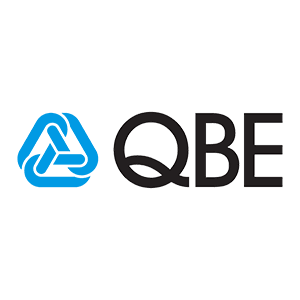Consumer report: Economic factors that could influence your decision to buy

Being aware of wider economic considerations can help you make more informed decisions when buying a property.

 Sponsored by QBE – helping customers learn more about lenders' mortgage insurance (LMI). Learn more on Finder's LMI hub, brought to you by QBE Insurance. Providing LMI since 1965.
Sponsored by QBE – helping customers learn more about lenders' mortgage insurance (LMI). Learn more on Finder's LMI hub, brought to you by QBE Insurance. Providing LMI since 1965.
In this report, we'll take a closer look at some of the current factors influencing the decisions Aussies make around purchasing property.
1. Choosing to save longer vs buying now
Prospective buyers tend to be torn between saving longer for a bigger deposit, or buying now and taking on a bigger home loan.
Risk tolerance, current assets, extra resources, desired timeframe and more all need to be weighed up.
Lenders also tend to find clear patterns of saving and a larger deposit more attractive. Mortgage stress can become an issue if finances aren't carefully managed.
In practical terms, though? It does mean a longer period of paying rent or living at home with family.
🏠 Housing by the numbers
Finder research indicates that if young Australians started saving today, they would need at least 12 years to save for a deposit on the average unit in a metropolitan area. For a house, it's closer to 16 years.
By contrast, buying now lets you start building equity in a property.
If you have less than a 20% deposit saved, many lenders will also charge Lenders Mortgage Insurance (LMI), which protects them against the possibility of you defaulting on the loan.
But though it tends to be seen as an additional cost to borrowers, LMI from providers like QBE can actually be used as a tool to purchase sooner.
Including the cost of LMI in your home loan will mean your repayments will be slightly higher. But it also means that you won't need to save as long before being able to get on the property ladder or expand your portfolio.
Learn more about QBE's lenders
 |

|

|
|||
 |
 |
 |

2. Rising house prices
For the average Australian looking to buy, house prices can still present a major challenge. In fact, According to CoreLogic, Australian house prices rose by 8.1% in 2023.
Figures like this can serve as an illustration of the difficulties that come with trying to save your way into a deposit.
For some, it will mean simply looking elsewhere to buy or delaying the purchasing decision.
For others, it may be an opportunity to use LMI from providers like QBE to boost their overall borrowing power. Though it can mean a larger home loan (at least until enough equity is built up) it can be used to opt for a home loan and make a purchasing decision sooner.
🏠 Housing by the numbers
The Finder First Home Buyer's Report indicated that since 2002, residential house prices have grown by a staggering 376%, while wages have increased by just 77%.

3. Rising interest rates
2023 saw a huge number of fixed-rate loans come to an end. This led to a significant jump in repayments for many Australians.
Refinancing has been a useful tool in some of these situations. However, it's not always straightforward.
Research from Finder's Housing Market Report indicated that in mid-2022, an Australian borrower could score an interest rate below 2.50%. By the end of 2023, the average interest rate had jumped to 5.41%.
LMI may also be necessary when refinancing, depending on how much equity you've built up.
Still, refinancing can also be an opportunity to add extra features to your loan. Using LMI doesn't have to restrict your options, either. LMI providers like QBE work with a wide range of lenders to offer a broad selection of loan products.
🏠 Housing by the numbers
Finder's Consumer Sentiment Tracker also found that 2 in 5 (39%) homeowners struggled to pay their mortgage in August 2023 – up from just 1 in 4 (26%) 12 months prior.*

4. Generation gaps and access to resources
There's been a significant amount of research and reporting on the challenges Gen Z in particular face when they're trying to get onto the property market.
And the numbers do suggest that Gen Z does get a rough deal at times. Since 2015, the average Gen Z Australian (i.e. those born in 1995 and later) are likely to pay 14 times their average salary for the total cost of their home loan. For a deposit, they're looking at 140% of their average annual salary.
By contrast, Gen X Aussies (those born between 1960 and 1979) since 1980 have also required 14 times the average salary for a mortgage. But they only required 90% of a year's salary for a deposit.**
🏠 Housing by the numbers
It's not all bad news for Gen Z. The Finder First Home Buyer's Report noted that 1 in 6 Gen Z buyers were planning to buy an investment property.

5. Family assistance
Contrary to the popular image of rich kids being gifted homes by their parents, Finder research indicated that only 1 in 10 buyers received help from their parents or family in purchasing a home.
So for those who can't get family assistance, what's the next step?
Everyone's situation is different, but LMI can present a means for people to access finance if they're unable to seek assistance from their family.
Additionally, even if you do have family help, LMI can still be used to enhance your overall borrowing power.
🏠 Housing by the numbers
23% of respondents noted their parents didn't offer to help at all and don't help out financially in other ways.

6. Your current financial circumstances
When it comes to buying, your finances are likely going to be the largest factor of all. While macroeconomic factors are important to note, they're not always going to be a direct reflection of your situation.
If you're relatively young and starting completely from scratch, it may be worth speaking to a financial planner, to get a feel for how you can set yourself up for home-buying success.
🏠 Housing by the numbers
ABS data suggested that among Australians who own investment properties, 13% of households were considered to be in "the lowest quintile of equivalised disposable household income". In layman's terms? Low income doesn't have to shut you out of home ownership or investment.
Taking the next steps
Keeping an eye on wider trends and market conditions can help you make more informed decisions when the time comes to purchase a home or investment property.
However, there isn't necessarily a specific "best" time to buy. So it's always worth consulting with experts to see what sort of action you should take, based on your specific circumstances.
You can also find a range of resources on purchasing property right here on Finder.
Explore a range of lenders that work with QBE
Lenders
Learn more about LMI with QBE

 Sponsored by QBE – helping customers learn more about lenders' mortgage insurance (LMI). Learn more on Finder's LMI hub, brought to you by QBE Insurance. Providing LMI since 1965.
Sponsored by QBE – helping customers learn more about lenders' mortgage insurance (LMI). Learn more on Finder's LMI hub, brought to you by QBE Insurance. Providing LMI since 1965.


